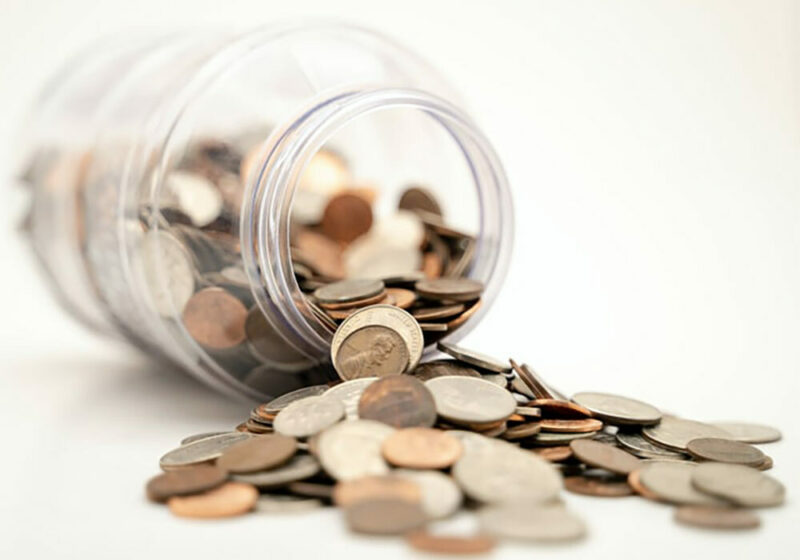Article Excerpt
A cash-out refinance lets you take advantage of the equity in your home while refinancing your mortgage at the same time. See if it might be right for you.
Mortgage loans come in many shapes and sizes. A mortgage loan can provide you with the money you need to buy a house. But they can also replace your current loan while bringing a lower interest rate or other terms that you prefer over the old loan, a process known as a refinance.
One type of mortgage refinance lets you borrow a greater amount than the balance of your current mortgage. This is known as a “cash-out refinance” since it results in part of the loan going directly to you. Read on to learn more about cash-out refinances and why they may or may not be right for you.
What is a cash-out refinance?
As the name suggests, a cash-out refinance is one in which you borrow more than you owe on your current mortgage. The balance of the loan that does not go to repay your mortgage goes to you as cash. A cash-out refinance lets you refinance your current mortgage and borrow against your equity in one loan.
Suppose you own a home valued at $750,000, and you have a mortgage with a balance of $350,000. Your equity in your home is $400,000. You could borrow against the equity with a home equity loan or home equity line of credit, but that would be separate from your existing mortgage and would require a monthly loan payment in addition to your mortgage payment.
» READ MORE: What’s a Reverse Mortgage?

Photo by Michael Longmire on Unsplash
Most mortgage lenders require you to keep at least 20 percent of the equity in your home free from any mortgage or home equity liens. In the example above, you would have to maintain at least $150,000 in equity. At the present mortgage balance, you could get a home equity loan for no more than $250,000. The maximum amount you could borrow with a cash-out refinance would be $600,000, resulting in $250,000 (minus various costs) coming to you in cash.
Not all mortgage loans include the 20 percent equity requirement. A VA cash-out refinance, for example, allows you to borrow against 100 percent of your equity, but only if you meet the eligibility requirements for the program.
Note also that the cash from a cash-out refinance will not be yours immediately after closing. You have a three-day right of rescission under the Truth in Lending Act. You have three days to change your mind about the loan for any reason, or for no reason at all. Until those three days have passed, neither the lender nor the escrow agent will release any funds.
What are the pros of a cash-out refinance?
The advantages of a cash-out refinance may include:
Extra cash
Obviously, a cash-out refinance results in you receiving a large sum of cash. If you use it wisely, such as to pay down other debt or make improvements to your home, it can be very advantageous for you.
Lower interest rate
Most homeowners who refinance their mortgage do so to get a lower interest rate. This is true for cash-out refinances as well. Since a cash-out refinance will increase the total balance of your mortgage, a lower interest rate will help keep your expenses from increasing too much.
Tax benefits
If you use the money from a cash-out refinance to make improvements to your home, you cannot deduct the cost of those improvements from your personal income tax. You can, however, add those costs to the basis of your home.
![Photo by Bill Jacobus on Flickr [Creative Commons] outdoor construction of pool](/images/articles/_generalPhotoStandard/pool-construction.jpg)
Photo by Bill Jacobus on Flickr [Creative Commons]
“Basis” is the original value of an asset when you purchased it. If you sell an asset for an amount greater than the basis, you might owe tax on the difference. Increasing your basis makes it less likely that you’ll owe tax if you sell the house.
Improved credit
You could use the cash from a cash-out refinance to pay other debts. This can reduce your overall expenses if those debts had higher interests rates, such as student loans or credit card debt. It can also improve your credit score by reducing your total amount of outstanding debt.
Lower borrowing costs
Mortgage refinances often cost less, in terms of costs paid by the borrower, than home equity loans and other personal loans. A cash-out refinance could get you more money than a home equity loan that technically provides you with the same amount.
What are the cons of a cash-out refinance?
A cash-out refinance might not be best for everyone. Disadvantages might include:
Longer repayment period or higher payments
A cash-out refinance will, by definition, have a higher balance than your previous mortgage. If your monthly payment remains the same, you could be adding years until you’ve paid off the loan. You could try to keep the same repayment period, but that almost certainly means that your monthly payment would go up, even with a lower interest rate.
![Photo by Ben Popken on Flickr [Creative Commons] ATM dispensing cash](/images/articles/_generalPhotoStandard/atm-cash.jpg)
Photo by Ben Popken on Flickr [Creative Commons]
Greater risk of foreclosure
The more money you borrow against the value of your home, the more you open yourself up to the risk of losing your home. Using a cash-out refinance to obtain money requires financial discipline. The money needs to be put to good use, or else you are exposing yourself to risk without reason.
Got cash-out questions?
If you have questions, or if you would like to learn more about your options, the Wood Group of Fairway is here to help. You can learn even more about refinancing on our refinance loan option page. Or, get started on your free pre-approval right away with our quick questionnaire!



